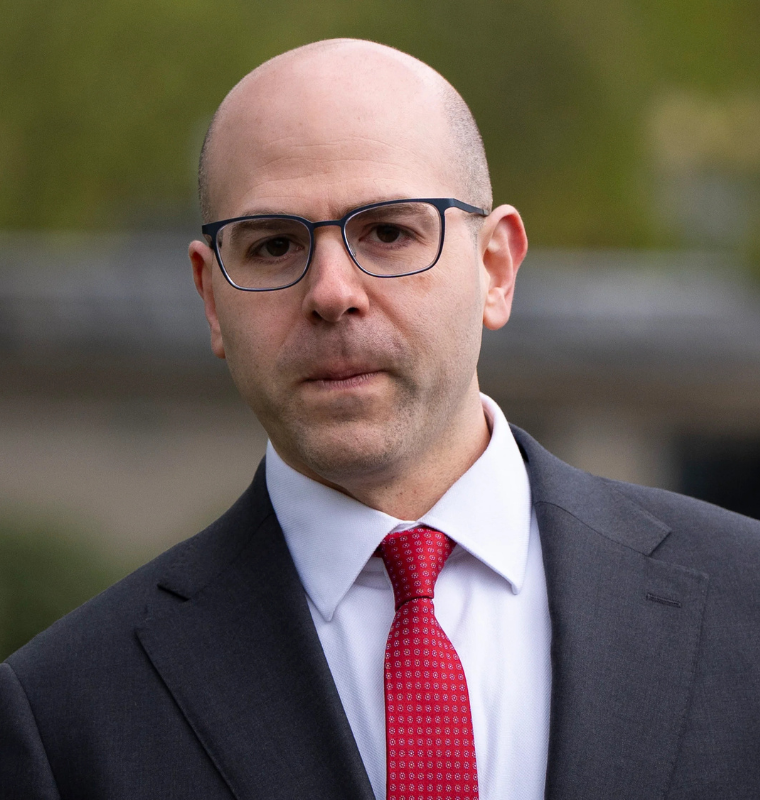Amazon Terminates Engineer After Protest Over Israel Ties
Amazon Terminates Engineer After Protest Over Israel Ties
By
Rachel Steinberg
Last updated:
October 14, 2025
First Published:
October 14, 2025
.webp)
Photo: The Washington Post
Amazon has officially terminated Ahmed Shahrour, a Palestinian engineer formerly working in its Whole Foods technology division, after suspending him last month over posts criticizing the company’s collaboration with Israel. The move has reignited tensions over how large tech firms handle employee activism and internal dissent.
Suspension Leads to Firing
In September, Amazon placed Shahrour on paid suspension, citing messages he posted via internal Slack channels and a letter addressed to senior leadership that challenged the company’s role in its Project Nimbus contract with Israel. According to company sources, the posts “may have violated multiple policies,” prompting HR to launch an investigation.
This week, Shahrour received final notification via email, informing him that within 24 hours he would receive pay and benefits details along with formal confirmation of his termination. The message also thanked him for his contributions during his time at the company.
Accusations and Corporate Defense
Amazon maintains that its decision stemmed from violations of its standards of conduct, communication policy, and acceptable use rules. The company states that Shahrour “misused company resources” by posting numerous non-work-related messages about the Israel–Palestine conflict.
In response, a coalition associated with Shahrour argued that his firing was a retaliatory act intended to silence Palestinian voices and discourage internal scrutiny of Amazon’s engagement in the war in Gaza. Shahrour himself characterized the termination as “a blatant act of retaliation designed to silence dissent … and shield Amazon’s collaboration in genocide from internal scrutiny.”
An Amazon spokesperson, Brad Glasser, reiterated that the company does not allow “discrimination, harassment or threatening behavior of any kind” and said that such matters are investigated thoroughly when reported.
The Project Nimbus Context
The controversy centers on Amazon’s involvement in Project Nimbus, a multibillion-dollar cloud computing contract with the Israeli government. Under this contract, Amazon and partner Google provide AI, data center infrastructure, and digital services to government and defense ministries.
Shahrour had publicly urged Amazon to abandon the agreement, labeling it as collaboration in conflict. He had also distributed flyers at Amazon’s Seattle campus and encouraged colleagues to support internal pressure to cancel the contract. Investigations and reporting have previously noted that critics contend the technology could support surveillance, military operations, and infrastructure resilience during conflict periods.
Wider Backlash in Big Tech
Shahrour’s case comes amid a series of high-profile internal protests and employee departures at major tech firms over ties to Israel.
- In August, Microsoft dismissed two employees for protesting inside its headquarters.
- Earlier this year, Google terminated 28 employees for staging protests over Project Nimbus and its role in Israeli infrastructure.
- A Microsoft engineer recently resigned citing discomfort over the company continuing cloud services for the Israeli military.
These incidents highlight a growing divide between corporate policy and employee expectations about corporate responsibility, free expression, and alignment with political causes.
Political Timing & Broader Impacts
Notably, Shahrour’s termination coincides with a broader moment in the Gaza conflict—on the same day, Hamas released seven Israeli hostages under a U.S.-brokered ceasefire agreement, with Israel releasing thousands of Palestinian detainees in parallel. The conflict, now in its third year, has claimed tens of thousands of lives, both military and civilian, and drawn scrutiny worldwide.
Amazon (and its competitors) now face increasing pressure to clarify the ethical boundaries of their contracts and define where employee speech can or can’t cross internal compliance rules. As technology companies are drawn deeper into geopolitical conflicts, how they balance security, governance, and freedom of expression will become ever more critical—both for public trust and for internal culture.
Popular articles
Subscribe to unlock premium content
The Digital Stage Economy: How Virtual Concerts Are Turning Pixels Into Profits

The Festival Economy: How Cultural Celebrations Turn Into Massive Markets

The Nostalgia Effect: How the Past Drives Modern Buying Decisions

The Digital Stage Economy: How Virtual Concerts Are Turning Pixels Into Profits

The Festival Economy: How Cultural Celebrations Turn Into Massive Markets

The Digital Stage Economy: How Virtual Concerts Are Turning Pixels Into Profits









